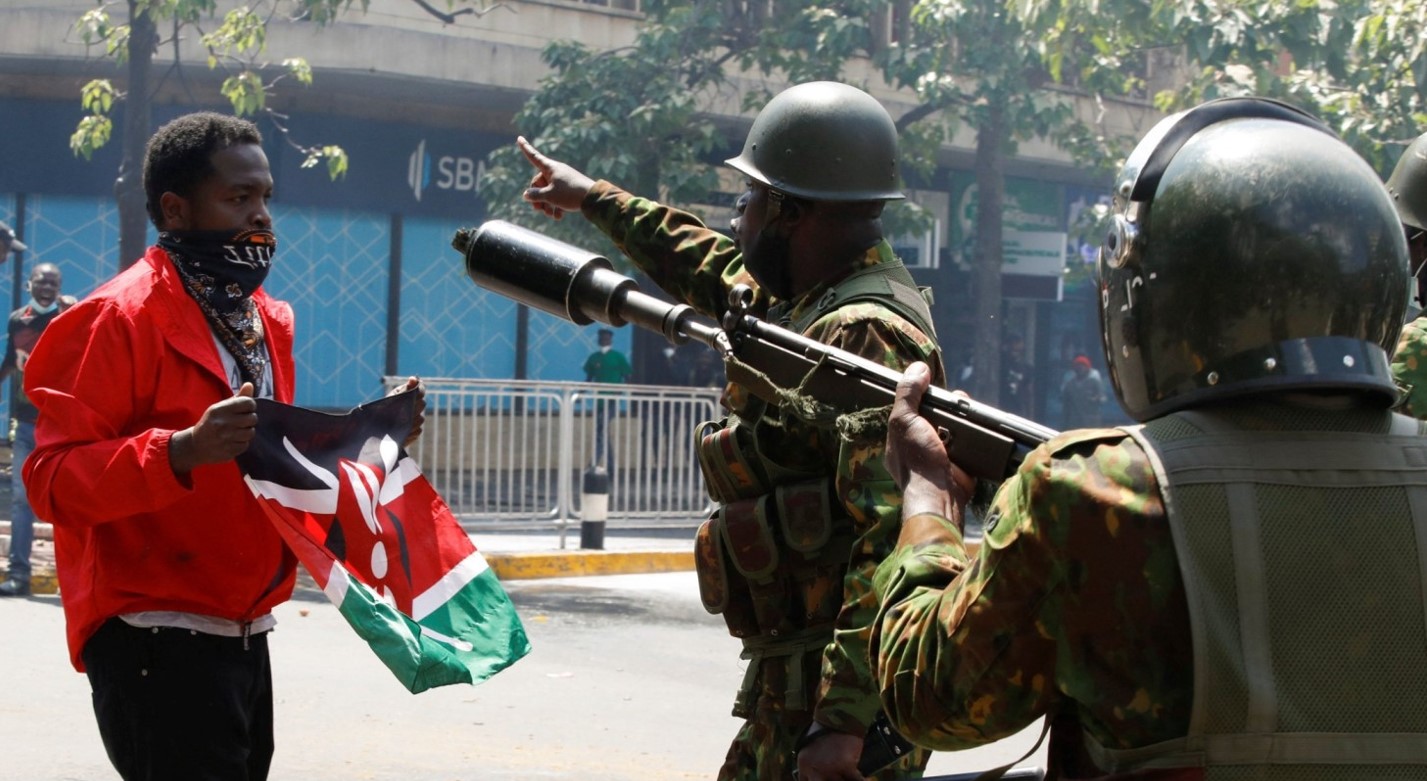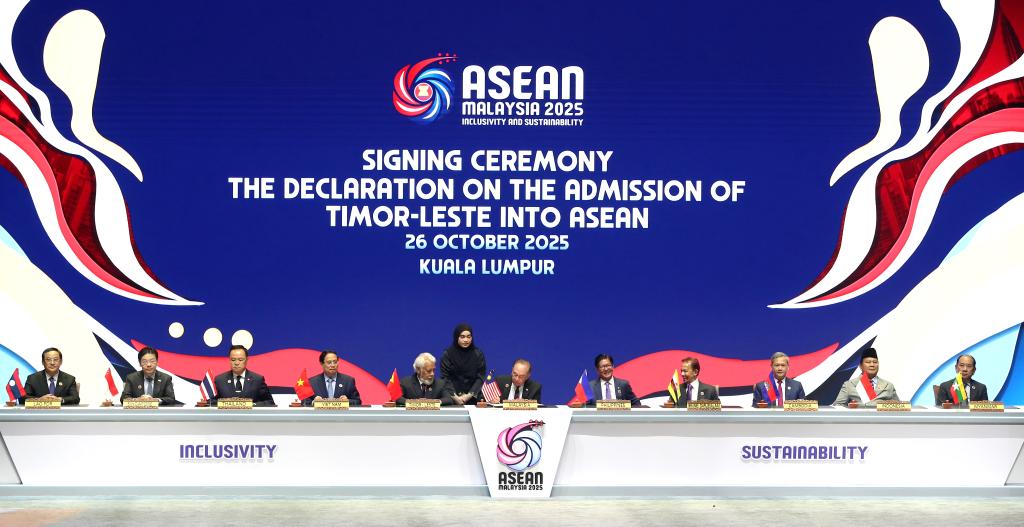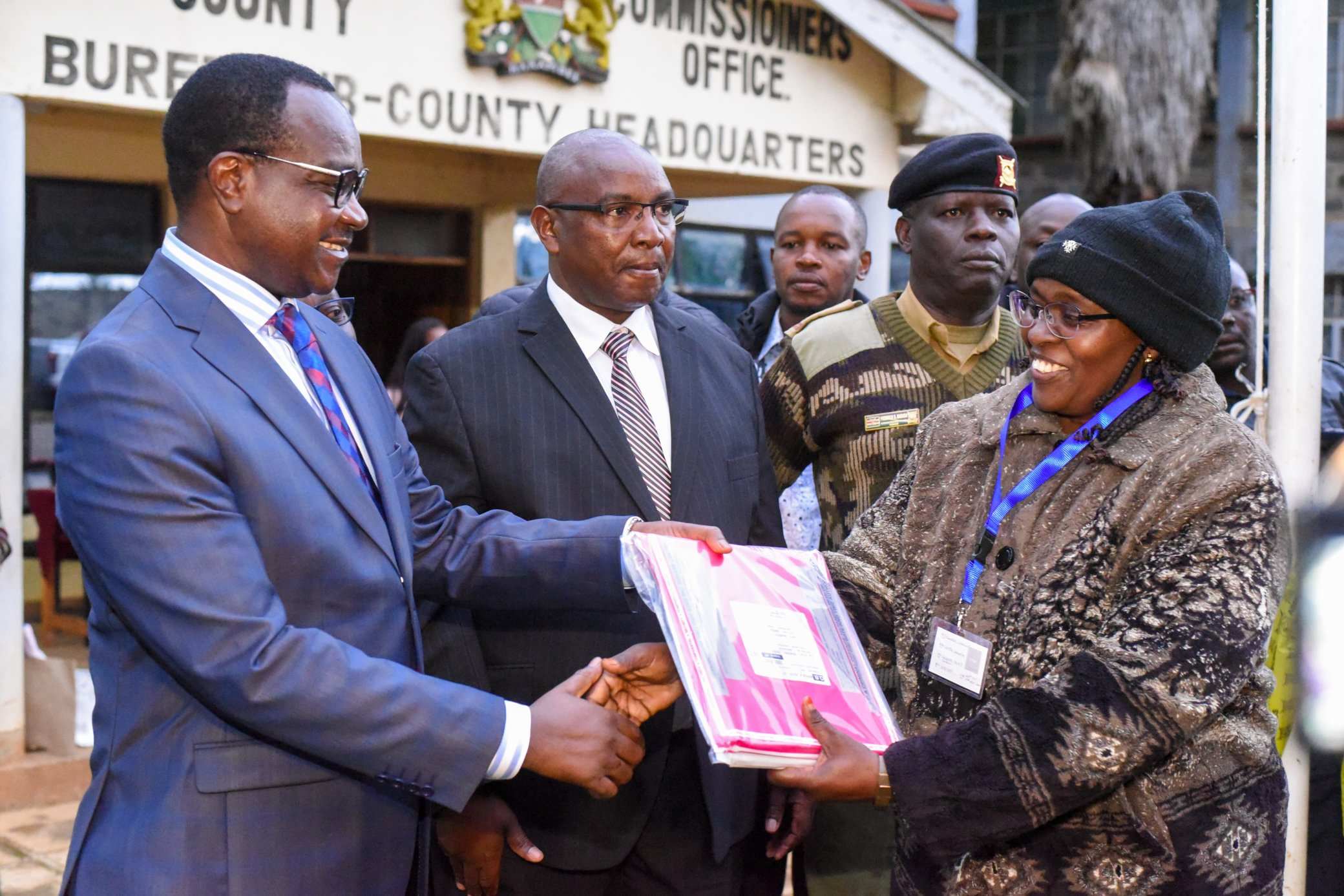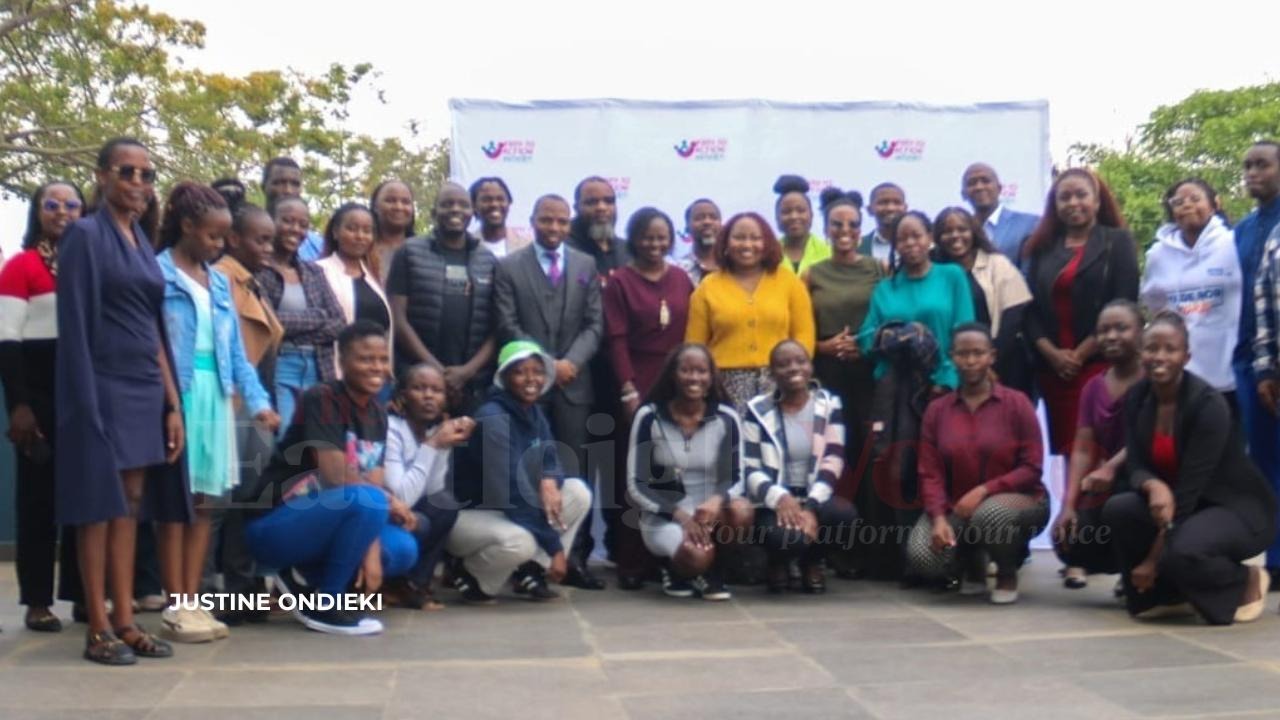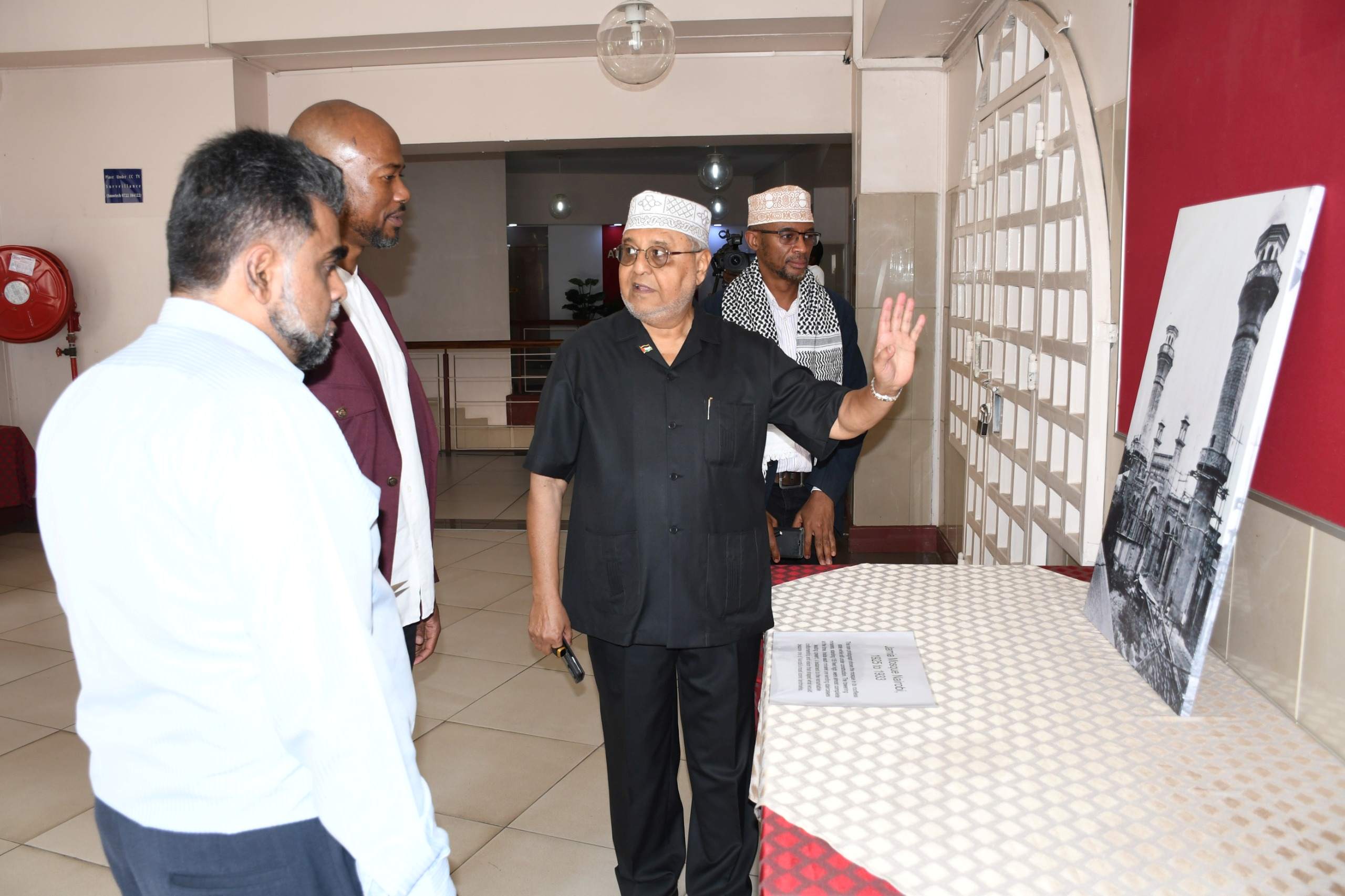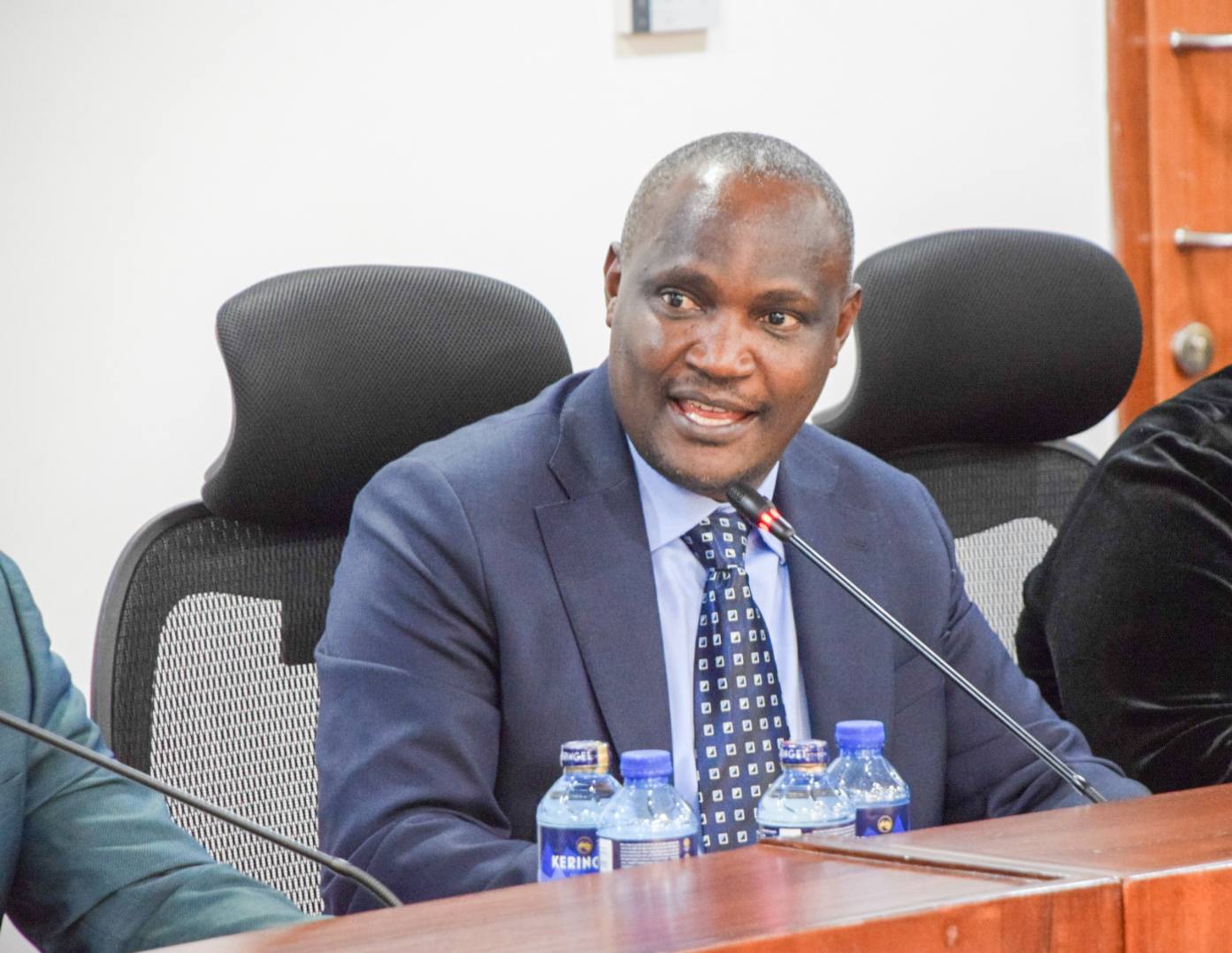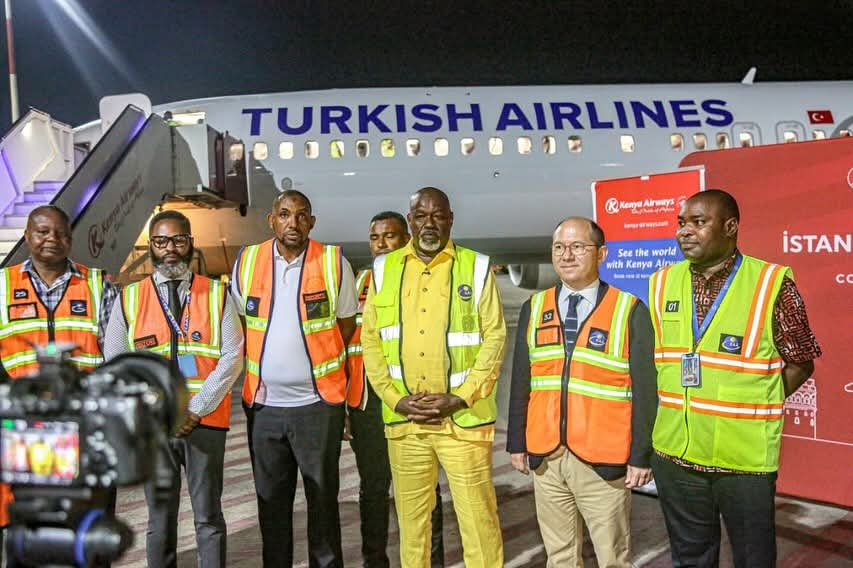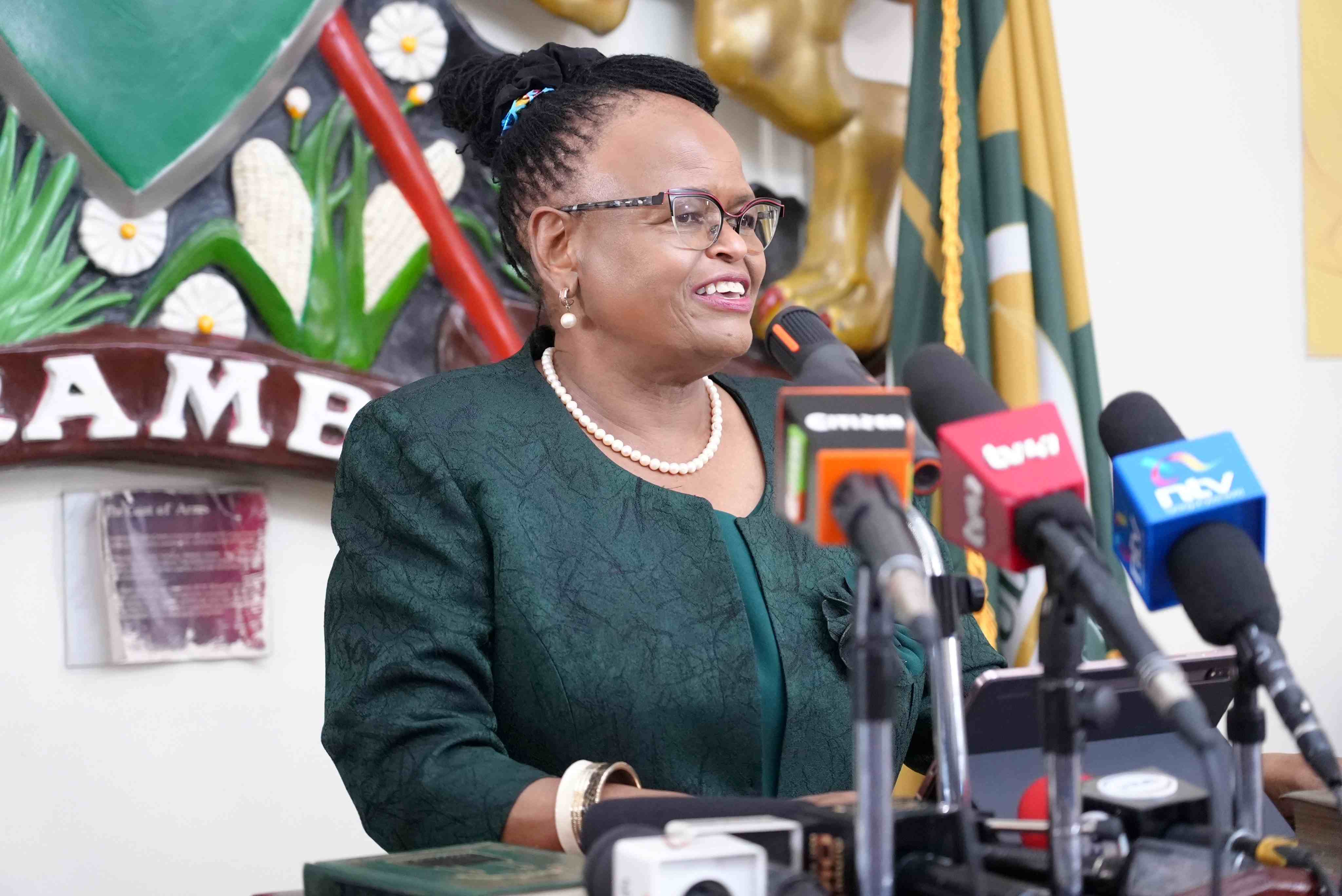President Hassan Sheikh, PM Abiy in Nairobi amid Ethiopia-Somalia tensions
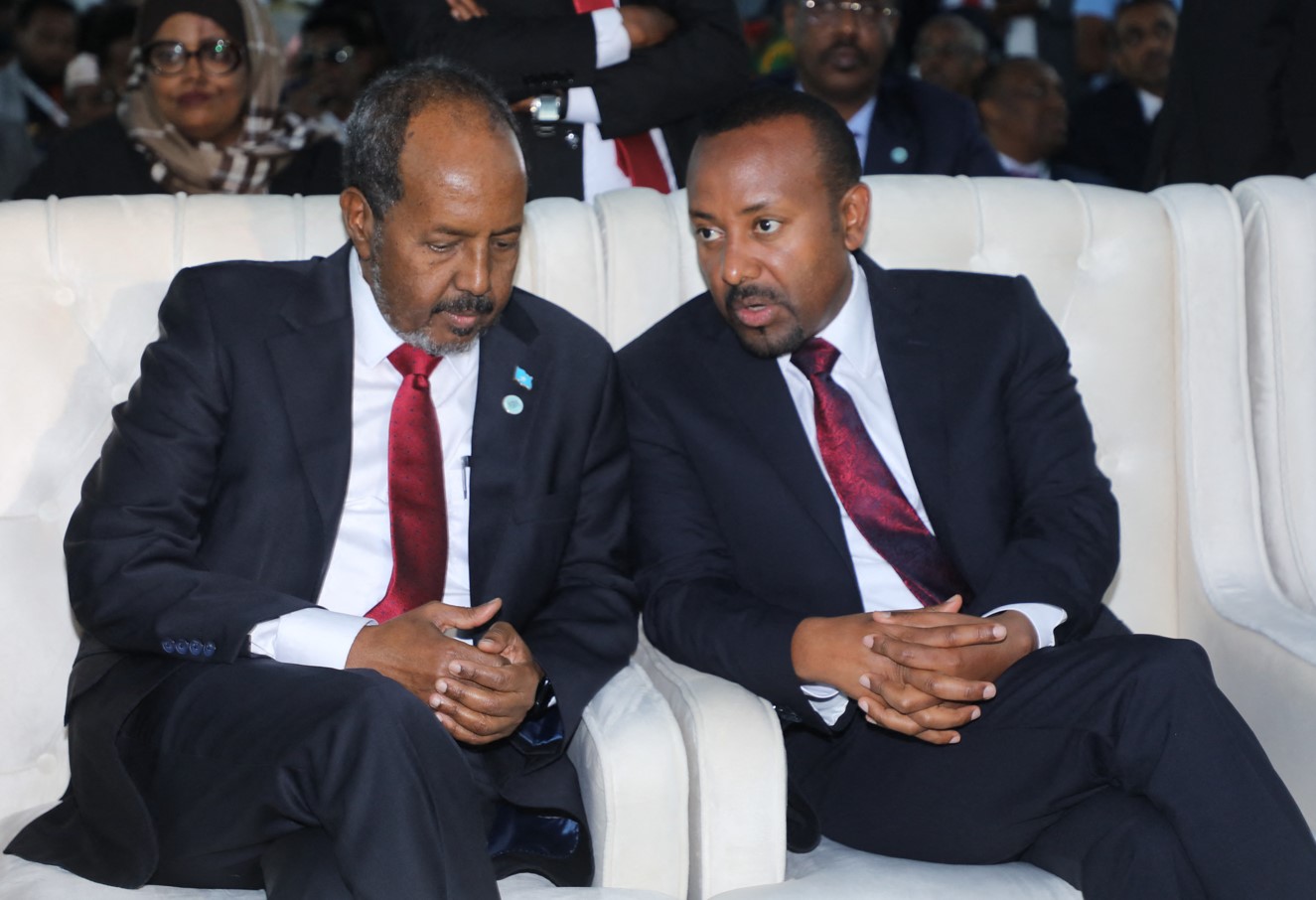
The controversial Ethiopia-Somaliand port access deal will likely come up as President Hassan Sheikh Mohamud and PM Abiy Ahmed come face to face in Nairobi.
A tale of diplomatic intrigue is set to unfold in Nairobi for the better part of this week as Somalia and Ethiopia's feuding leaders come face to face during a global environmental assembly.
Somali President Hassan Sheikh Mohamud jetted into Nairobi on Wednesday for the sixth session of the UN Environment Assembly (UNEA6), aimed to help restore harmony between humanity and nature, and thereby improve the lives of the world's most vulnerable people.
More To Read
- Ex-President of Ethiopian Islamic Affairs Supreme Council, Grand Mufti Haji Umar Idris, is dead
- Ethiopia’s two bids at democracy have failed: What it will take to succeed
- Ruto receives Egypt’s envoy in Nairobi a day after backing Ethiopia’s GERD
- GERD inauguration reignites Ethiopia's Red Sea Access ambitions
- Somali President Hassan Sheikh hosts UAE minister for talks on security, development
- Somali opposition warns of political crisis amid failed talks with President Hassan Sheikh Mohamud
Ethiopian Prime Minister Abiy Ahmed arrived in Nairobi on Tuesday evening for a three-day state visit and was officially received at the State House by his host President William Ruto.
The backdrop of this high-level environmental gathering is a series of divergent foreign policy decisions and views that have left experts and observers speculating about the future of diplomatic relations in the region.
Ethiopia-Somalia tensions were sparked in January when Abiy inked a controversial deal with Somaliland, that would allow it sea access for commercial and military activities in exchange for Somaliland's recognition as an independent state and a stake in Ethiopian Airlines.
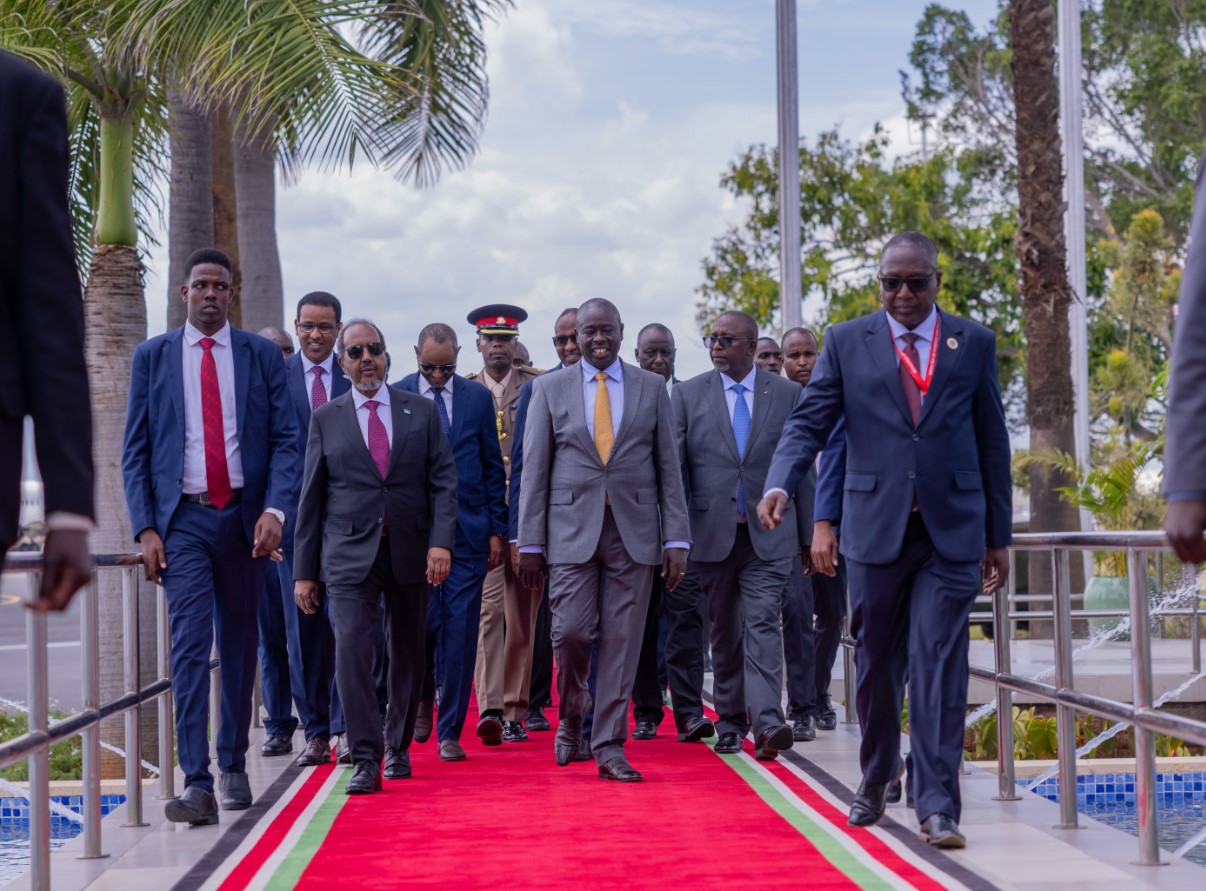
Hassan has opposed the deal on local and global stages, alleging an annexation attempt by Ethiopia, as well as interference with its sovereignty and territorial integrity as Somaliland is a breakaway region of Somalia.
This foreign policy decision that triggered the dispute between the two neighbouring countries heightened tensions in the Horn of Africa. Although nothing has been implemented yet, Addis Ababa's intention to recognise Somaliland as a sovereign republic has drawn attention from capitals worldwide, with many affirming support for Somalia's sovereignty and territorial integrity.
Apart from highlighting the country's unique environmental challenges during the environmental summit, Hassan is expected to touch on the challenges hampering peace, stability, and sustainable development in the region.
He will likely hammer Addis Ababa for attempting to annex Somalia's territory through the pact, an allegation that the Ethiopian Prime Minister has publicly denied.
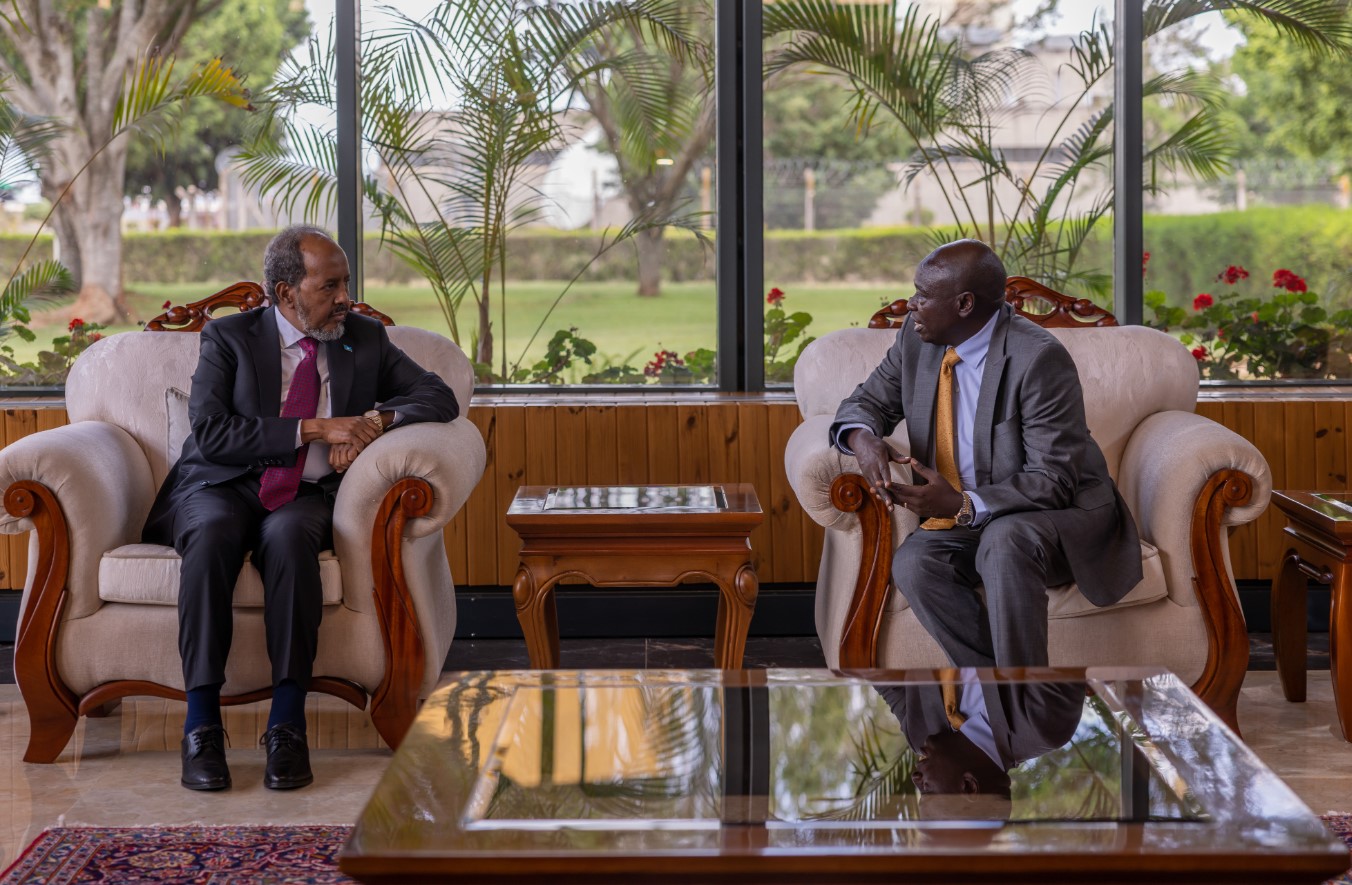
'Striking a balance'
With both of the feuding leaders meeting in Nairobi, Kenya finds itself at the centre, with President Ruto having to strike a balance to sustain relationships he has strengthened over the years.
Kenya has, in recent years, enhanced its ties with both Mogadishu and Addis Ababa.
Where Addis Ababa is concerned, Kenya recently concluded a strategic framework to promote bilateral cooperation with Ethiopia, in areas of economic and social development, a step which led to Abiy's state visit.
In addition, the reception at the Jomo Kenyatta International Airport (JKIA) on Tuesday, when Ruto received Abiy Ahmed, was filled with camaraderie, marking President Ruto's inaugural airport welcome for a visiting leader.
In the case of Somalia, Nairobi's pivotal role in persuading and attracting the country to the East African Community (EAC), as its seventh member, was confirmed by a diplomatic source at the regional bloc's headquarters in Arusha, Tanzania.
The source revealed that former Kenyan President Uhuru Kenyatta played a significant role in influencing his counterparts to approve Somalia's membership.
I extend my heartfelt gratitude to my brother, President @WilliamsRuto, for his gracious welcome to Kenya. Our comprehensive discussions today have not only strengthened our existing ties but also highlighted key areas for future collaboration. As neighbors sharing a unified… pic.twitter.com/mkADLdgU3u
— Abiy Ahmed Ali 🇪🇹 (@AbiyAhmedAli) February 28, 2024
Ruto has not openly declared support for either Ethiopia or Somalia in the conflict but Somali Foreign minister Ali Omar confirmed to The Eastleigh Voice that the Kenyan President supports Somalia's sovereignty.
"We appreciate the support Kenya provided to us," he said on January 18, 2024, following a private meeting with the Kenyan leader.
President Hassan has, on several occasions, cautioned Ethiopia about fulfilling the controversial Memorandum of Understanding (MoU) with Somaliland, saying he will not tolerate the violation of his country's sovereignty and territorial integrity.
Abiy, on the other hand, says he has to consider the unique needs of a population limited by the landlocked nature of their country. He notes it is unsustainable to rely on its neighbours for access to ports as this is expensive.
Both Abiy and Hassan, under pressure from continental and global bodies to de-escalate, say they want a peaceful solution to the conflict, not war.
Top Stories Today
